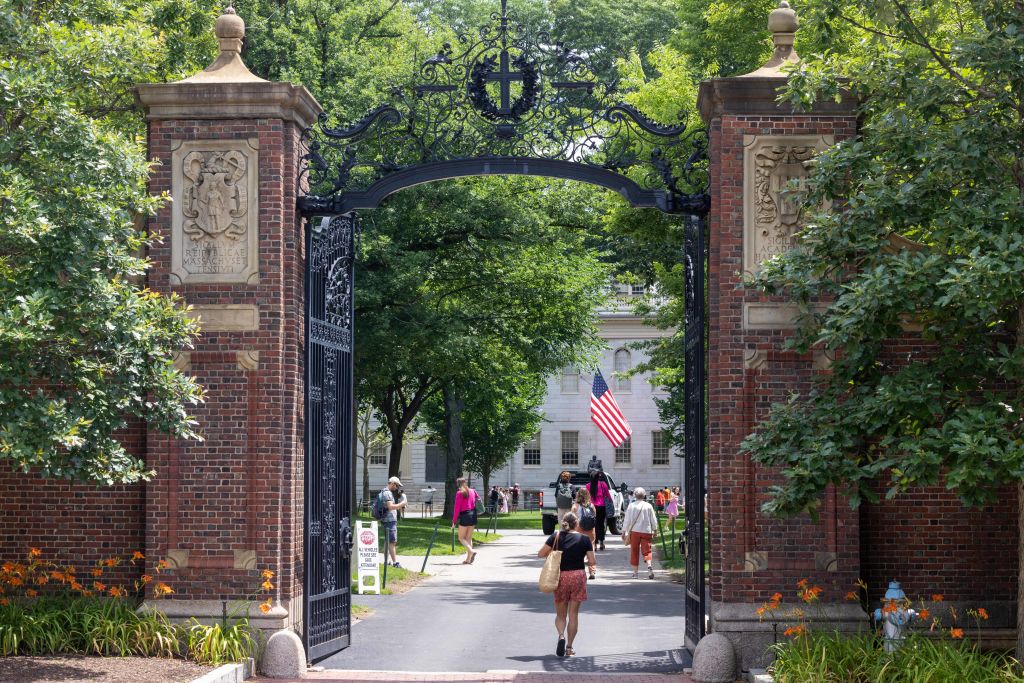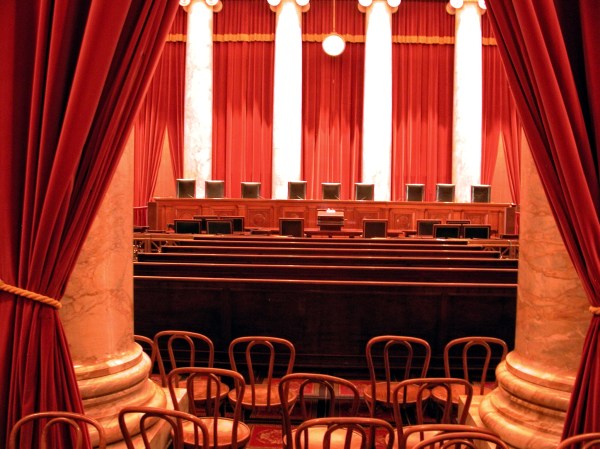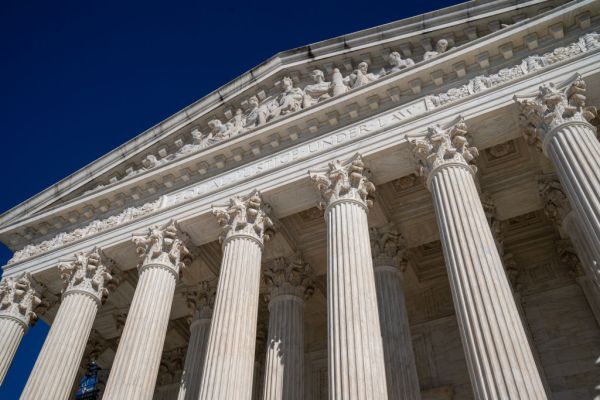The Supreme Court’s ruling last week banning race-based admissions criteria is spurring even more calls for reform in higher education.
The Department of Education’s Office for Civil Rights—which oversees its nondiscrimination compliance—received a complaint on Monday filed on behalf of three advocacy groups that hope to use the result of Students for Fair Admissions v. Harvard to also abolish legacy and “dean’s interest list” (i.e. donor) admissions preferences.
Both practices have been widely criticized for perpetuating wealth inequalities. The complainants also claim the policies are effectively racist.
What’s the case?
The 31-page complaint—filed by a Boston law firm on behalf of three charities focusing on migrant and ethnic minority rights—claims that Harvard University’s use of “Donor and Legacy Preferences” violates Title VI of the Civil Rights Act of 1964 by privileging white applicants over applicants of color. As a recipient of federal money, the complainants argue, Harvard University “violates federal law.”
Racial exclusion is the explicit premise of the case. Legacy and donor preference, they claim, “disproportionately advantage white applicants and “systematically disadvantage students of color, including Black, Latinx, and Asian Americans.”
The complaint was timed to build on the momentum of last week’s ruling.
In his concurring opinion, Justice Neil Gorsuch wrote that Harvard’s policy was “no help to applicants who cannot boast of their parents’ good fortune or trips to the alumni tent all their lives” and that “while race-neutral on their face, too, these preferences undoubtedly benefit white and wealthy applicants the most.”
How widespread are legacy and donor admissions?
According to a report by the think tank Education Reform Now (ERN), around half of private colleges and a quarter of public colleges—including flagship state universities—consider alumni legacy relationships in some form when making admissions decisions.
The number that considers donor relationships is officially obscure, but likely significant, according to Frederick Hess, director of education policy at the American Enterprise Institute. In an essay for the journal National Affairs, he argued that “the wealthiest applicants routinely purchase what’s best understood as an admissions fast pass” to the nation’s elite universities.
Most institutions aren’t mandated to report the number of legacy or donor admissions and, to avoid further public scrutiny, keep them guarded.
However, recent cases like Students for Fair Admissions v. Harvard and 2019’s Varsity Blues Scandal—which exposed “side-door” admissions bribes and forgeries—have increased public scrutiny at the most selective colleges.
“It’s only in a very small share of higher education where it matters,” Hess tells The Dispatch, “because the vast majority of institutions pretty much accept everybody that applies.” But the situation is different at places like Harvard, where he estimates that approximately 10 percent of the class of 2019 were on the “dean’s interest list” of donor families.
Harvard does not publish official legacy figures, but its student newspaper, The Harvard Crimson, surveyed the class of 2025 and estimated approximately 15 percent were legacy students. The estimates were similar on the other side of the country, where a similar 15 percent of those admitted to Stanford University since 2019 were legacy students.
Why do legacy and donor admissions matter?
While there’s an ongoing debate about the effect of abolishing legacy and donor preferences, most Americans don’t seem to regard the practice as valid. According to a recent poll from the Pew Research Center, for example, 75 percent of U.S adults say legacy admissions should “not be a factor” in admissions decisions.
Few contest that the practices exacerbate wealth inequality on campus. There’s less agreement about its relationship to race since such preferences are not based on race, but on wealth.
Institutional freedom is a further issue. Yale Dean of Admissions Jeremiah Quinlan successfully defended the university from a Connecticut House bill proposing to abolish legacy preferences in 2020. The state, he argued, “should not dictate how colleges and universities make admissions decisions.”
For Hess, the problem comes down to institutional hypocrisy. “It’s only in recent decades that these institutions have really tried to market themselves as engines of opportunity,” he tells The Dispatch. “But the same college presidents who will tirelessly lecture the country on its failures to fully live up to the American ideal of equality of opportunity turn around and condone legacy and payoff-based admissions.”
Most legacy students surveyed by The Crimson reported average family incomes of $250,000 or more, 30 percent reported incomes over $500,000, and another 30 percent preferred not to say.
A 2020 study—again, of Harvard—presented evidence that the average white applicant was five times more likely to be accepted as a legacy student and seven times more likely as a donor affiliate. The report also shows that legacy and donor students are disproportionately white.
What can the Department of Education do?
The complaint asks the Department of Education to ban legacy admissions nationwide on the basis that they violate the racial equality provisions of the Civil Rights Act.
That’s a different claim from the one made in the recent Supreme Court case. Affirmative action was an explicitly race-based policy, while legacy preferences and “dean’s interest lists” are not.
“There absolutely are black and Latino families who benefit from these policies,” Hess says. “In the affirmative action cases, for instance, you could not find an Asian student who had benefited from affirmative action.”
James Murphy, deputy director of higher education policy at Education Reform Now, nonetheless sees the case as a way of putting pressure on colleges to reform.
“If the Supreme Court’s logic is that a preference that helps one racial group discriminates against another one, then legacy preferences sure look like discrimination,” he tells The Dispatch.
“Harvard and every other college in the nation should get out ahead of these civil complaints and drop legacy preferences now.”








Please note that we at The Dispatch hold ourselves, our work, and our commenters to a higher standard than other places on the internet. We welcome comments that foster genuine debate or discussion—including comments critical of us or our work—but responses that include ad hominem attacks on fellow Dispatch members or are intended to stoke fear and anger may be moderated.